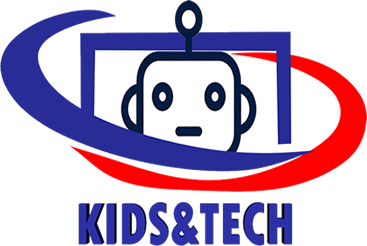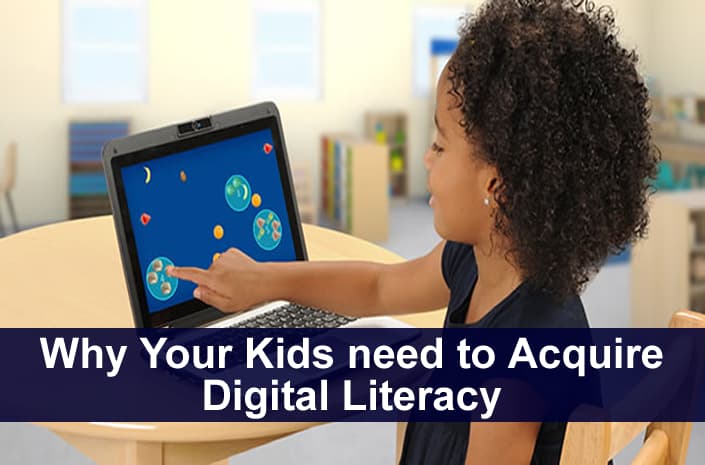What is STEM EDUCATION?
STEM Education for Kids in Nigeria.STEM has become popular in Nigeria nowadays for helping children to develop their interested fields in early stages. So what is STEM? And how can it benefit child development? Wanna know the resources for STEM?
What is STEM?
STEM stands for science, technology, engineering, and mathematics. At its core, STEM is a teaching philosophy that integrates all four disciplines together into a single, cross-disciplinary program that offers instruction in real-world (as opposed to purely academic) applications and teaching methods
This is important to understand because getting a math degree doesn’t necessarily mean you completed a STEM program, even if math is a STEM subject. Without the integration of all four disciplines and the use of real-world teaching methods, you don’t get the educational benefits that make STEM degrees so valuable and careers in STEM fields so desirable. STEM is an all-encompassing field of study.
In this fast-changing world, tech skills are rapidly becoming a ‘must-have’ skill for everyone. Thus, in the 21st century, STEM learning has become more and more essential for students and even younger kids. More schools and even economies are focusing on STEM learnings now, trying to put students’ development of scientific thought and logical thinking processes front and center.
STEM education goes beyond school subjects. It gives a skill set that governs the way we think and behave. Merging science, technology, engineering, and mathematics, STEM education helps us to solve the challenges the world faces today.
In a world that is becoming increasingly complex, where success is driven not only by what you know, but also by what you can do with the knowledge, it is imperative for youths to be equipped with skills to solve tough problems, gather and evaluate evidence, and make sense of information.
Preparing Students for Careers in STEM Fields
According to the U.S. Department of Education, “All young people should be prepared to think deeply and to think well so that they have the chance to become the innovators, educators, researchers, and leaders who can solve the most pressing challenges facing our nation and our world, both today and tomorrow. But, right now, not enough of our youth have access to quality STEM learning opportunities and too few students see these disciplines as springboards for their careers.”
Unfortunately, Nigerian schools are not prepared to think deeply and to think well so that they have the chance to become the innovators, educators, researchers, and leaders who can solve the most pressing challenges facing our nation and our world, both today and tomorrow. This is why STEM Education for Kids in Nigeria has become so important.
Introducing curricula and educational programming focusing on science, technology, engineering, and mathematics is intended to help better prepare students in these areas of learning and create practical applications for how these lessons apply to the real world. STEM education is designed to encourage students to pursue these subjects as well as innovation and research in their education and career paths. This focus will help prepare future generations to best handle our world’s biggest problems.
Is STEM beneficial to kids learning development? Why?
Instead of viewing STEM in isolation of four different subjects, it is more like an education method that places a strong emphasis on experience and making children active learners. Let’s talk about the benefits of STEM Education in students’ development in Nigeria.
1. Problem-solving Skill
STEM education allows kids to develop their problem-solving skills through explorative means. As STEM focuses more on implementing experiments, children can actively participate in scientific explorations. This helps kids to examine problems and create a solution plan to solve the problems step by step. The thinking process helps students to train up their critical thinking skills as well. According to a survey conducted by ML-PBL, project-based learning like STEM education greatly improves the problem-solving skills of children and increases their reasoning abilities.
2. Foster Creativity
“Thinking out of the box” is also a key skill that can be learned via STEM learning. STEM students try to come up with unique creative ideas while solving complex problems with an interdisciplinary approach. They develop this skill with inspiration from their teammates. Thus, it encourages kids to explore new things, use their imagination and build their inventions.
3. To Improve Ingenuity
Ingenuity and creativity can pair with STEM and lead to new ideas and innovations. Via training of Maths, Science and Logical Thanking, ingenuity can be trained. This characteristic can also help students to be smart in tackling other subjects or other life problems.
4. Learn To Question
During STEM learning, questioning is an essential process. As new concepts, experiments and logic are often introduced to kids, it will stimulate them to ask questions and prove their thinkings via experimenting, asking, and trying.
These are the importance of STEM in the NIGERIA educational system;
STEM-Enhanced Teamwork and Communication
STEM education prepares the world for the future. It is based on teamwork and the collaboration of professionals from different disciplines. As a STEM student, you do not need to be an expert in each particular subject. You rather acquire a mindset that enables you to become a part of the highly qualified workforce, which functions in collaboration. Teamwork brings a significant increase in productivity, work satisfaction, and profitability.
Active engagement of experts from diverse fields will drive change in our society. STEM education exposes students to effective interdisciplinary communication. Scientists research and experiment, offering the team discoveries. Technology experts provide gadgets that can make the work of the team more effective. Engineers help to solve challenges by designing and running platforms that enable change.
Mathematicians analyze information to eliminate mistakes and provide precise calculations. Our world is continuously changing. The only way we can be ready for its challenges is through communication and collaboration.
Collaborative experience also helps to broaden the impact of STEM education. Working with local experts and international colleagues, can promote values and move towards a single purpose. This way, we improve communities, offering new educational and employment opportunities. Such open access to world-class experience is possible only when we combine our knowledge and capabilities.
Preparation of STEM Experts Who Can Make a Difference
STEM education gives people skills that make them more employable and ready to meet the current labor demand. It encompasses the whole range of experiences and skills. Each STEM component brings a valuable contribution to a well-rounded education.
Science gives learners an in-depth understanding of the world around us. It helps them to become better at research and critical thinking. Technology prepares young people to work in an environment full of high-tech innovations. Engineering allows students to enhance problem-solving skills and apply knowledge in new projects. Mathematics enables people to analyze information, eliminate errors, and make conscious decisions when designing solutions.
STEM education links these disciplines into a cohesive system. Thus, it prepares professionals who can transform society with innovation and sustainable solutions.
The STEM approach to education fosters creativity and divergent thinking alongside fundamental disciplines. It motivates and inspires young people to generate new technologies and ideas.
Social Awareness
There is a high demand for STEM skills in society. STEM education enables people to make informed decisions within the discussed subject areas.
Besides, one of the goals of STEM initiatives is to encourage the broader participation of women and minorities in the STEM workforce. This allows us to bridge ethnic and gender gaps. It needs the engagement and participation of schools, policymakers, parents, students, and educators. This is the only way to continue technological and scientific progress
Sustainable Solutions to Challenges
STEM subjects are focused on providing solutions to the concerns society has today. Human history had seen years of thoughtless exhaustion of natural resources. Such a lack of environmental education led to numerous challenges. These issues affect the health and well-being of all living organisms on our planet. Our environment needs protection. Thus, sustainability became one of the most urgent aspects studied by STEM disciplines.
The youth is more worried about climate change than the older generation. As statistics shows, 70% of young people aged 18 to 34 worry about global warming. STEM education can answer their questions. It can teach them how to find the necessary solutions for sustainable development. Education is a powerful tool that ensures the rise of a STEM literate society which will be on the positive side for a country like Nigeria.
Well-educated community members can find ways to work in a competitive world. They will use sustainable practices that do not harm nature. In the bigger picture, economic and social progress is tightly connected to the environment. We need to work our way to a sustainable future. Yet, it is possible to accomplish only with STEM skills, experiences, and a multi-disciplinary approach.
STEM is a new way of learning.
As a philosophy, STEM is meant to create a program that integrates all four disciplines in a way that forces the student to use cross-disciplinary knowledge to solve problems. Which essentially means that the traditional learning style incoming freshman are used to—typically some form of memorization and recitation of information—is pretty much out the window.
You’ll rarely be given the explicit solution to a problem. Instead, you’ll often be required to use what you already know to figure out the right answer for yourself. This requires a significant amount of creativity and flexible thinking, as well as technical knowledge and mastery of each individual discipline.
This approach to education is often why those of us who are extremely analytical, but not especially creative, tend to struggle with STEM. Successful students quickly learn how to think for themselves and abandon their expectations of being told what to think.
Of course, STEM teachers won’t assume that incoming freshmen in a basic technology class already have mastery of advanced, graduate-level mathematics.
Students in STEM are guided in their learning to build up mastery of the four disciplines over time, just like non-STEM students. However, when the time comes for them to apply what they’ve learned, whether a student does well or not depends heavily on how well they’re able to solve the problem, not how much they’ve memorized.
Conclusion
The world we live in is changing, and we must keep pace with it. STEM education changes society by offering learners a new mindset and skills valued in any profession.
STEM in Nigeria’s Educational system allows young people to be flexible, look for patterns, find connections, and evaluate information. Besides, STEM education raises social awareness. It communicates global issues to the general public. Therefore, STEM opportunities move us to a knowledge-based economy and enhanced sustainability literacy.


Good post. I learn something totally new and challenging on sites I stumbleupon everyday. It will always be helpful to read content from other writers and practice a little something from other websites.